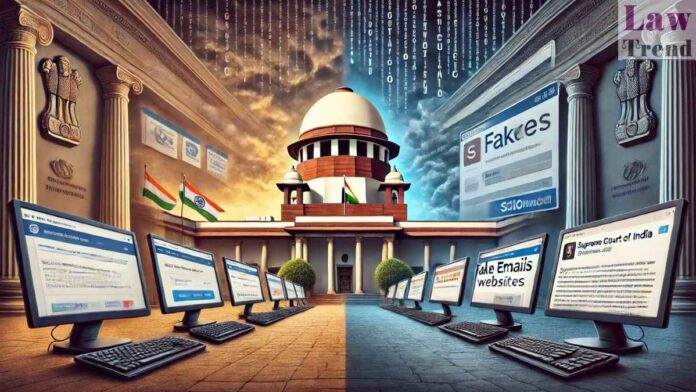In a significant cybersecurity alert, the Supreme Court of India has warned the public about a series of fake websites impersonating its official domain. This caution comes in the wake of a sophisticated phishing attack designed to trick individuals into sharing sensitive information.
The Court’s Registry, under the guidance of Registrar (Technology) Hargurvarinder Singh Jaggi, has identified multiple fraudulent URLs including www.scigoin.com, www.judiciarycheck.in, and others that mimic the Court’s legitimate web presence. These sites have been soliciting personal and confidential information, exploiting the trust and authority associated with the Supreme Court’s name.
In a public notice dated January 9, 2025, the Court emphasized that it never requests personal, financial, or confidential details via email or through its website. It urges the public to always verify the authenticity of any URL that purports to represent the Supreme Court, particularly highlighting that the genuine domain is www.sci.gov.in.
This alert follows an alarming incident reported during a PIL hearing on January 6, where Uttar Pradesh Senior AAG Garima Prashad informed a bench led by Justice Hrishikesh Roy that about ten IAS officers had received dubious email invitations to join court proceedings, despite official notices not being issued. These emails, which superficially appeared to be sent from the Supreme Court, were later revealed to be part of the phishing operation.
Justice Roy responded to this revelation with a call for vigilance, noting the peculiar sign-off in the fraudulent emails — “thanks and regards,” a departure from the official communication style of the Supreme Court.
The Registry has responded by alerting law enforcement to investigate and apprehend those responsible for creating and disseminating these fake communications. Meanwhile, victims of this phishing attack are advised to change their passwords and notify their financial institutions to preempt any unauthorized access.




